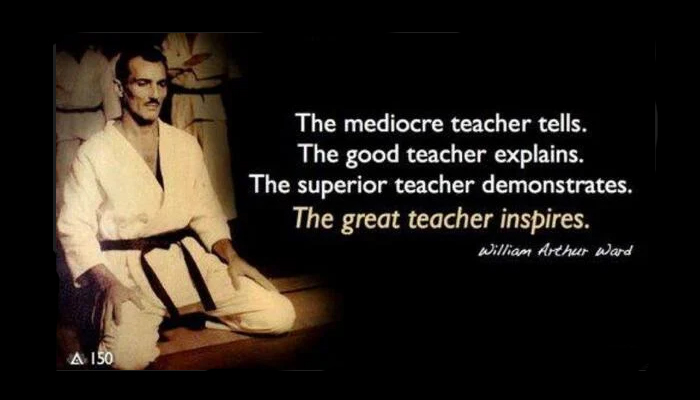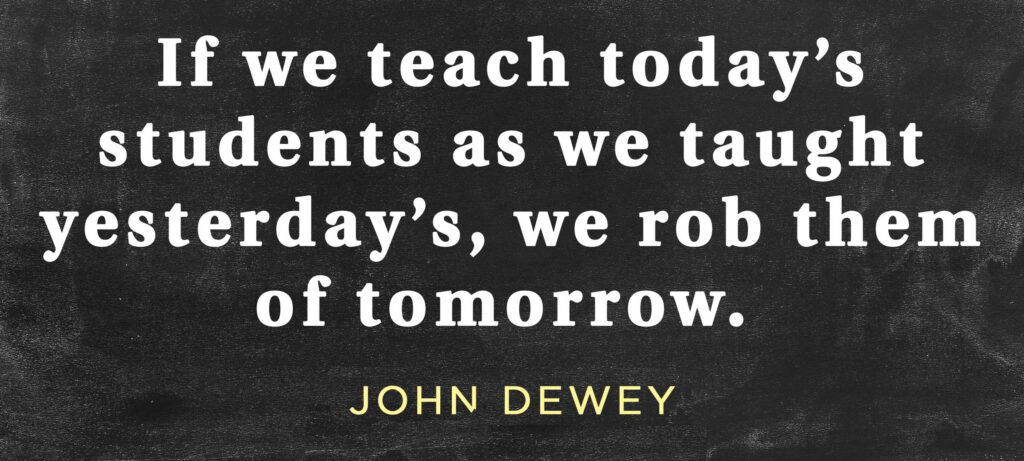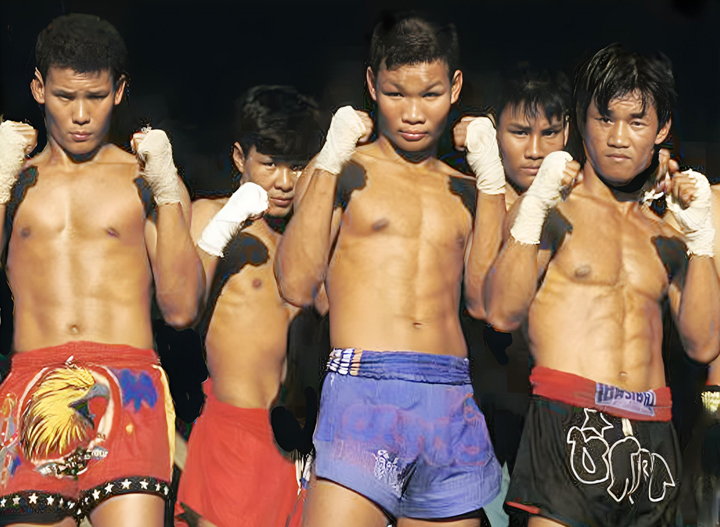
Academy Menu
Supplemental Lessons
Qualities of the Exceptional Lethwei Saya
Becoming an Excellent Teacher

The effective promotion of Lethwei will require well-prepared, highly proficient, and motivated Sayas that can provide quality training to individuals with a variety of abilities and interests. Lethwei education and training programs should include instructor and coach preparation, either formally or through a guided apprentice approach. Becoming an excellent Lethwei Saya and/or coach requires knowledge and understanding of the teaching of adults (andragogy) and youth (pedagogy). It also requires knowledge, communication ability, empathy, acumen, leadership skills, and dedication. The ability to address the learning needs of individuals with various intellectual and physical challenges is also essential for a competent Lethwei educator.
A Lethwei Saya should have an unwavering passion for sport. This personal enthusiasm serves as a driving force, inspiring dedication and perseverance in both the Saya and their students. A coach’s passion for Lethwei is contagious and can inspire students to stay dedicated to their training. Enthusiasm creates a positive training environment and fosters a love for the sport.
Teaching Lethwei requires a unique blend of technical expertise, effective communication skills, a deep understanding of the sport’s cultural and historical aspects, and a commitment to fostering a positive and supportive learning environment. To impart the skills and philosophy of Lethwei effectively a Saya must possess a deep understanding of the art, a commitment to personal growth of their students, strong interpersonal skills, and a comprehensive sport education background. The exceptional Lethwei Saya must maintain high ethical standards, emphasizing respect, sportsmanship, and discipline, which are fundamental aspects of Lethwei. These qualities contribute to the creation of a Lethwei instructor who not only imparts technical knowledge but also instills discipline, respect, and passion for Lethwei in their students.
Being an exceptional Lethwei Saya is more than just demonstrating techniques. Preparing Lethwei instructors must go beyond just having the experience in Lethwei participation in Lethwei practice or competition. Studies from sport sociology and sport psychology have found that elite and average participants do not automatically make excellent Sayas or coaches. This empirical evidence, along with common sense observations, shows that often the best coaches and Sayas are those who did not necessarily excel at the given sport they are teaching or coaching. In some cases, they did not even compete in the sport. Individuals including Angelo Dundee, Cus d’Amato, Gil Clancy, Ray Arcel were considered top coaches/trainers/Sayas in the sport of boxing yet themselves boxed little or none in their earlier years. In other sports like football or soccer, the likes of Andy Reid, Carlos Alberto Parreira, and Brian Billick had little to no experience participating in the sport each excelled at coaching. Unquestionably, even top Lethwei practitioners and athletes will require additional preparation to become excellent Sayas and coaches.
The quality instruction of Lethwei also requires a specific set of pedagogical skills. Saya should be well-versed in the appropriate instructional strategies, lesson planning, and assessment methods to effectively convey Lethwei’s practice and safeguard student progress. The ability to design a structured curriculum that progressively teaches techniques, tactics, principles, and cultural aspects ensures that students build a strong foundation in Lethwei.

Of course, technical proficiency is the cornerstone of a good Lethwei Saya. Mastery of the techniques, tactics, strategies, and nuances of the sport is essential. A skilled instructor should not only have a strong personal foundation in Lethwei but also the ability to convey that knowledge clearly to students. This involves being able to break down complex movements, demonstrate proper form, and provide constructive feedback to help students refine their techniques. Whether teaching basic strikes or advanced combinations, a good instructor ensures that students grasp the fundamental principles while also fostering continuous learning processes.
The Lethwei Saya should also have a strong understanding of physical fitness and conditioning required to participate and/or compete in Lethwei. They should be capable of designing training programs that enhance and maintain their students’ physical attributes as well as their Lethwei skill.
Safety should always be a top priority. A good coach emphasizes proper technique and ensures that training sessions are conducted in a safe and controlled manner to minimize the risk of injuries. Sayas should be trained in first aid and be well-versed in safety protocols to minimize the risk of injury during training and that goes beyond the physical training. This cultural immersion helps students develop a profound respect for the art and its traditions, instilling values like discipline, humility, and perseverance.
Lethwei is as much about strategy as it is about raw power. Sayas should be well-versed in Lethwei and related combat sports fight strategies, fight analyses, and tactical planning.
Strong communication and teaching abilities are crucial to convey Lethwei concepts effectively to students. A good instructor must be able to articulate concepts and instructions clearly, adapting their teaching style to the diverse learning preferences of students. This involves not only verbal communication but also non-verbal cues, visual aids, and hands-on corrections. Patience and the ability to connect with students individually, understanding their strengths, weaknesses, and learning pace, enables the Saya to tailor their approach for optimal impact.
Understanding the needs and limitations of each student is crucial. Empathetic Sayas can tailor their instruction to suit the individual requirements and abilities of their students, creating a more effective learning environment. Understanding the challenges and emotions that students may face is important. A coach with empathy can better connect with their students, providing the necessary support and encouragement.
Teaching Lethwei requires patience, as students may progress at different rates. Learning Lethwei can be challenging, especially for beginners. A patient coach understands that progress takes time and is willing to work with students at their own pace, offering constructive criticism and encouragement. A good Saya can adapt to different learning speeds and styles.
Creating a positive and supportive learning environment is another crucial aspect of being a good Lethwei Saya. The instructor sets the tone for the training space, cultivating an atmosphere where students feel encouraged to push their limits, learn from mistakes, and support one another. This involves effective class management, providing constructive feedback, and recognizing and celebrating individual and collective achievements. A good Saya creates a sense of camaraderie among students, fostering a community that extends beyond the training sessions.
Adaptability is a key trait for a Lethwei instructor. Students vary in skill levels, fitness, and personal goals, and a good Saya can adjust their approach to meet the diverse needs of their students. Whether teaching a beginners’ class or coaching advanced fighters, adaptability ensures that the instructor can tailor their instruction to suit the specific requirements of each group or individual.
Beyond its physical aspects, an excellent Lethwei Saya imparts a deep appreciation for the cultural traditions and historical events. Lethwei is more than just a collection of techniques. It carries a rich heritage that includes rituals, traditions, and a code of ethics. An effective instructor integrates these cultural elements into their teachings, fostering a holistic understanding of Lethwei
Thut Ti Lethwei Global Academy Disclaimer
The information provided on Thut Ti Lethwei Global Academy (lethwei.net) is intended for general informational and educational purposes only. The content on this Website is not intended as a substitute for instruction or direction from a professional combat sports coach or martial arts instructor. The content is also not intended as a substitute for medical direction, advice, diagnosis, or treatment from a health care professional. Always seek the advice of your physician or other qualified health provider with any questions you may have regarding a medical condition or th e safety of participating in any physical activity.
Not Medical Advice: The content on this Website is not intended to be a substitute for professional medical advice, diagnosis, or treatment. Always seek the advice of your physician or other qualified health provider with any questions you may have regarding a medical condition.
Consult a Professional: It is essential to consult with a healthcare professional before starting any new activity program, diet, or exercise routine. Your individual training goals should be discussed with a qualified healthcare provider who can provide personalized recommendations.
Assumption of Risk: Participation in physical activity and exercise carries inherent risks, and by using the information provided on this Website, you acknowledge and voluntarily assume these risks. Always exercise caution and common sense when engaging in physical activities.
Accuracy of Information: While we strive to provide accurate and up-to-date information, the content on this Website may not always reflect the most current research or medical guidelines. We do not guarantee the accuracy, completeness, or timeliness of the information presented.
Responsibility: You are responsible for your health and safety when engaging in any combat sport, martial art, or fitness program, individual exercise, or dietary practice discussed on this Website. Thut Ti Lethwei Global Academy, its authors, contributors, and affiliates disclaim any liability for any injury, loss, or damage incurred as a result of the use or reliance on the information provided on this Website.
Changes to Disclaimer: Thut Ti Lethwei Global Academy reserves the right to modify or update this disclaimer at any time without prior notice. It is your responsibility to review this disclaimer periodically for any changes.
By using Thut Ti Lethwei Global Academy website, you agree to the terms of this disclaimer. If you do not agree with these terms, please refrain from using this website.
